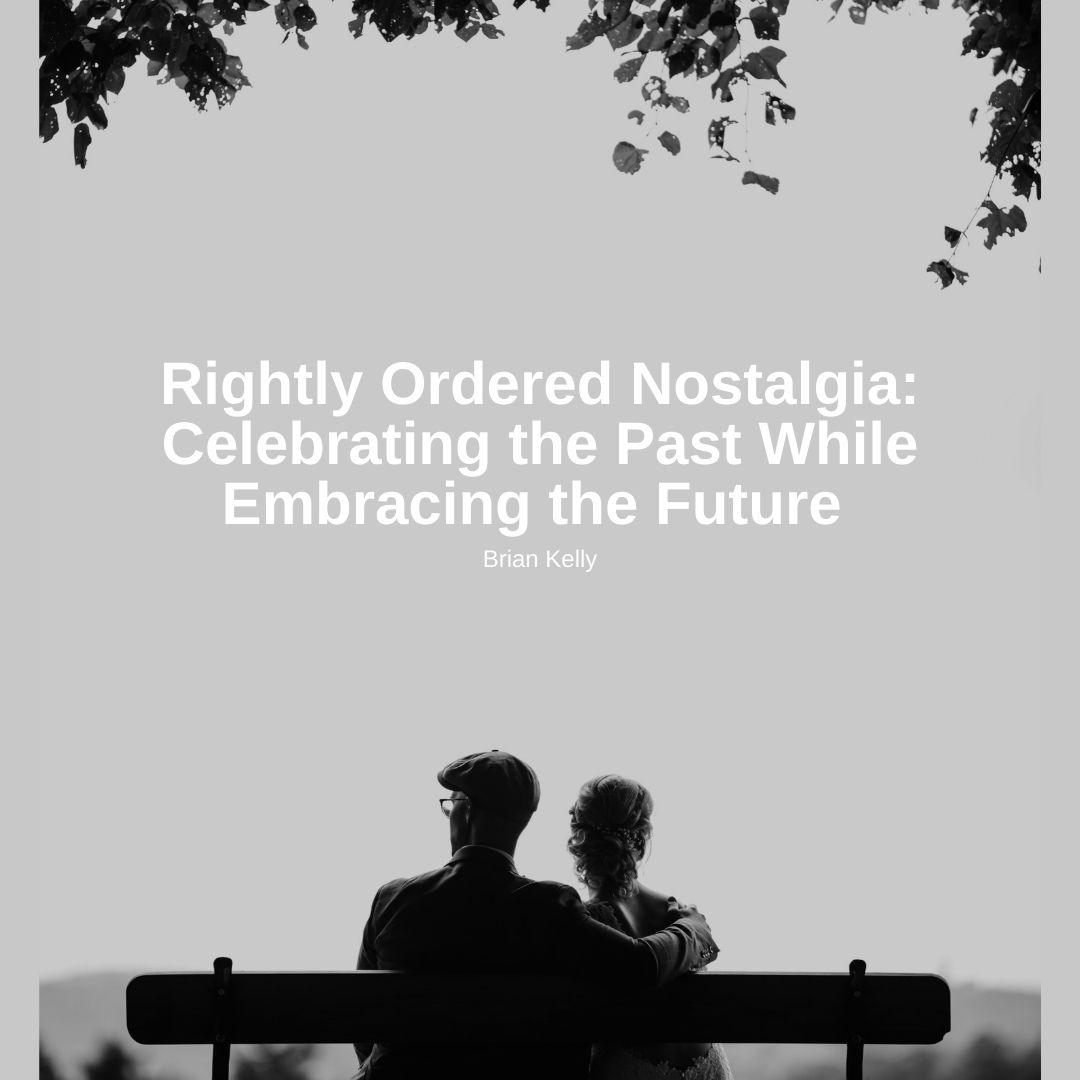
In a small town in southeastern Idaho, a middle-aged man was sitting on his front porch talking and reminiscing about the past with his nephew. The man was in his forties, with graying hair and a subtle look of regret in his eyes. His life, which had at one time been great, had become mediocre.
“Man, I wish I could go back in time …” he said. “I’d take state.”
In high school, this guy was a big deal. He was the quarterback on his varsity football team, and rumor had it that back in ‘82 he could throw the pigskin over a quarter mile. But even if it were true, that was a long time ago, and it had been many years since the glory of his high school football career. Those days were gone. The best was in the past, and some things just can’t be relived.
He looked over at his nephew sitting on the steps next to him.
“How much you wanna make a bet I can throw a football over them mountains?” he asked.
But his nephew didn’t answer.
The sad truth—the hard reality that they both knew—was that he was living in the past. His best years were behind him. Even still, there was a look of longing on his face, a small glimmer of hope. Something inside this man still believed it was possible, if only he had the chance to do it again.
He looked off into the distance and asked,
“You know a lot about cyberspace? You ever come across anything … like time travel?” [1]
Can’t We Just Go Back to the Good Old Days?
Nostalgia can be a powerful tool to boost us into a better future. It can also be a dangerous device to keep us stuck in the past. It’s how we apply nostalgia that determines whether it becomes a benefit or a detriment. Will we use the fond memories of the past to motivate us into a promising tomorrow, or will we stunt our growth through unbelief, not appreciating, or anticipating, that great things are still possible today?
I celebrated my birthday a few weeks ago. We had the family over to our house for a small party, and toward the end of the night, we all sat around our dinner table. I was with my wife, Lynne, and our grown kids, and we were looking at old pictures and videos of our time in Africa.
It was nostalgia at its best.
“Look at how young we were!” I said to Lynne, as we flipped through some pictures from early 2003.
“And what were we thinking doing all this crazy stuff?” Lynne said, laughing.
She was looking at a picture of herself and our toddler son Judah holding hands in the middle of the jungle near the Uganda/Congo border. She was six months pregnant.
Lynne and I moved to Uganda when we were twenty-three. We had a one-year-old son, and Lynne was pregnant with our second child, Julia. We didn’t go onto the mission field with enough financial support or missionary training, but we ended up living in Africa a total of ten years. Our two daughters, Julia and Liana, were both born there—one in an African hospital and the other at our house with a midwife. It was an amazing adventure, and one we will never forget. We have so many treasured memories of God’s faithfulness, and sometimes we can’t believe that was really us. We saw Him work in ways back then that we haven’t seen since, and we long for many of those same experiences.
When people hear our story, they often ask what motivated us to make the decision to move to Africa at such a young age. Why go with a one-year-old, while pregnant, and with very little training or financial support? Lynne is always the first to answer, and her answer is always the same:
“A lot of faith, and a little bit of stupidity.”
And she IS a woman of faith. I wish I had space here to tell you of all the amazing things she did on the mission field. She’s awesome! But I disagree with her answer, slightly. I think it was the other way around. We had a lot of stupidity, and a little bit of faith! Nevertheless, God is faithful, and His grace was strongest in our weakness.
In looking back, I know that we lived a life of faith, even if it was small faith. God moved powerfully through our family, and He did things I still find hard to believe. Of course, we made some mistakes along the way, but overall, we wouldn’t change it for the world. In fact, we often look back and think, “How can we experience that again; how can we go back to the good old days?”
I’ve prayed that prayer before, and the expected answer was “you need a lot of faith and a little bit of stupidity.” Just like it was last time. After all, that was the secret to success, wasn’t it?
But the Lord’s response was different. He said, “I don’t want you to experience that again. I want you to do a new thing, in a new way.”
It’s a valuable lesson: God doesn’t want us to live in His past faithfulness and fruitfulness; He want’s us to walk in a new work for today.
Over the years of doing “new things” for God, I believe that the best answer is not the one we got in the past but the one that God has for us in the present. God doesn’t want us to keep repeating what He did back then; He wants us to live for what He wants to do right now.
It’s time to make some new good old days.
Were the Good Old Days Really Even That Good?
We all like remembering the way it was back then. The success we had, the experiences, the way we felt walking in the Spirit, doing God’s work. But sometimes the way we remember it isn’t exactly the way it was. Selective memory can be a real problem. We tend to remember and exaggerate the good things, while conveniently forgetting about the bad.
And it could be even worse than that. New research from the UC Irvine Translational Neuroscience Laboratory suggests that this selective remembering of positive experiences can be a marker for memory loss in the elderly.
“Nostalgia is almost second nature for us, and seems like a healthy way to reflect on the past. Who wouldn’t want to reminisce about childhood, college, or that first job, when life was wonderfully uncomplicated. Viewing life through rose-tinted glasses, however, may not be such a good thing.”[2]
Yikes! It looks like for some of us the stories get bigger and better as we get older and dumber.
I’m not trying to minimize the awesome things God has done. We really DID experience wonderful times in the past and some of it so well documented that we couldn’t forget. Let’s champion the successes of the past. But let’s be honest, we have a way of eliminating or minimizing all those other times when things weren’t so great. It’s easy to glamorize the past and forget about the bad parts of the good old days.
The Negative Effects of Nostalgia—What Are We Saying to Future Generations?
There’s something else about nostalgia that we should be careful to avoid. That is, we should avoid giving mixed signals to the new generation about the work of God in their day. By always talking about, “back in my day,” and “It was better back then,” we’re really minimizing the genuine work that today’s Christians are experiencing with God.
This story from the book of Ezra always blows my mind. All the people should’ve been happy at this momentous occasion. The temple was finally being built! God was doing a new and amazing work in their day. But not everyone saw it that way. While many were cheering and celebrating, others were weeping uncontrollably. These two groups of God’s people responded to the same event in totally different ways. The new generation of Israelites were pumped, but the older generation couldn’t let go of the past.
“And they sang responsively, praising and giving thanks to the Lord: “For He is good, For His mercy endures forever toward Israel.” Then all the people shouted with a great shout, when they praised the Lord, because the foundation of the house of the Lord was laid. But many of the priests and Levites and heads of the fathers’ houses, old men who had seen the first temple, wept with a loud voice when the foundation of this temple was laid before their eyes. Yet many shouted aloud for joy, so that the people could not discern the noise of the shout of joy from the noise of the weeping of the people, for the people shouted with a loud shout, and the sound was heard afar off.” (Ezra 3:11–13, NKJV)
I just had my birthday, so I’ll put myself in the older guy category. The message to us is that we shouldn’t minimize the work that God is doing today just because He isn’t doing it the same way as He did back then.
Throughout history, we see God working a new work for every new generation. I think the best way to use the memories of God’s past faithfulness is to celebrate them and more importantly, to learn from them. They teach us that God is faithful. They show us that He has done it before—and He can do it again. God will pour out His Spirit into a new revival in our day; we just need to be ready for it!
Be positive. Let’s start to celebrate the successes of our successors.
The Best is Yet to Come
At my birthday party, as the family gathered around the photos and videos of our lives in Africa, I felt so thankful. Thankful for a wonderful family, and thankful for the life of faith we experienced together. I really enjoyed the sense of nostalgia, reliving the memories that were so special to us. The memories of God’s faithfulness were powerful and tangible.
It was that evening that God gave me a word about nostalgia. He gently reminded me that looking back should motivate me to move forward. He wants to do a new work in our midst right now.
I know that in twenty years it will be my birthday again. We will get out the pictures and videos from our lives “back then,” and the kids and grand-kids will all gather around.
“Remember what God did?” I’ll ask. “It was so amazing; I can’t even believe it really happened.”
The kids and grand-kids will laugh with us at some of the silly moments. They will ask questions about the time we took that step of faith and answered the call of God.
“Wow grandpa, look how young you and grandma look!” one will say.
“I can’t believe we really did that. What were we thinking?” Lynne will ask.
And at that future birthday party, with the family gathered around, we’ll be talking about what’s happening right now.
Because these ARE the good old days.










